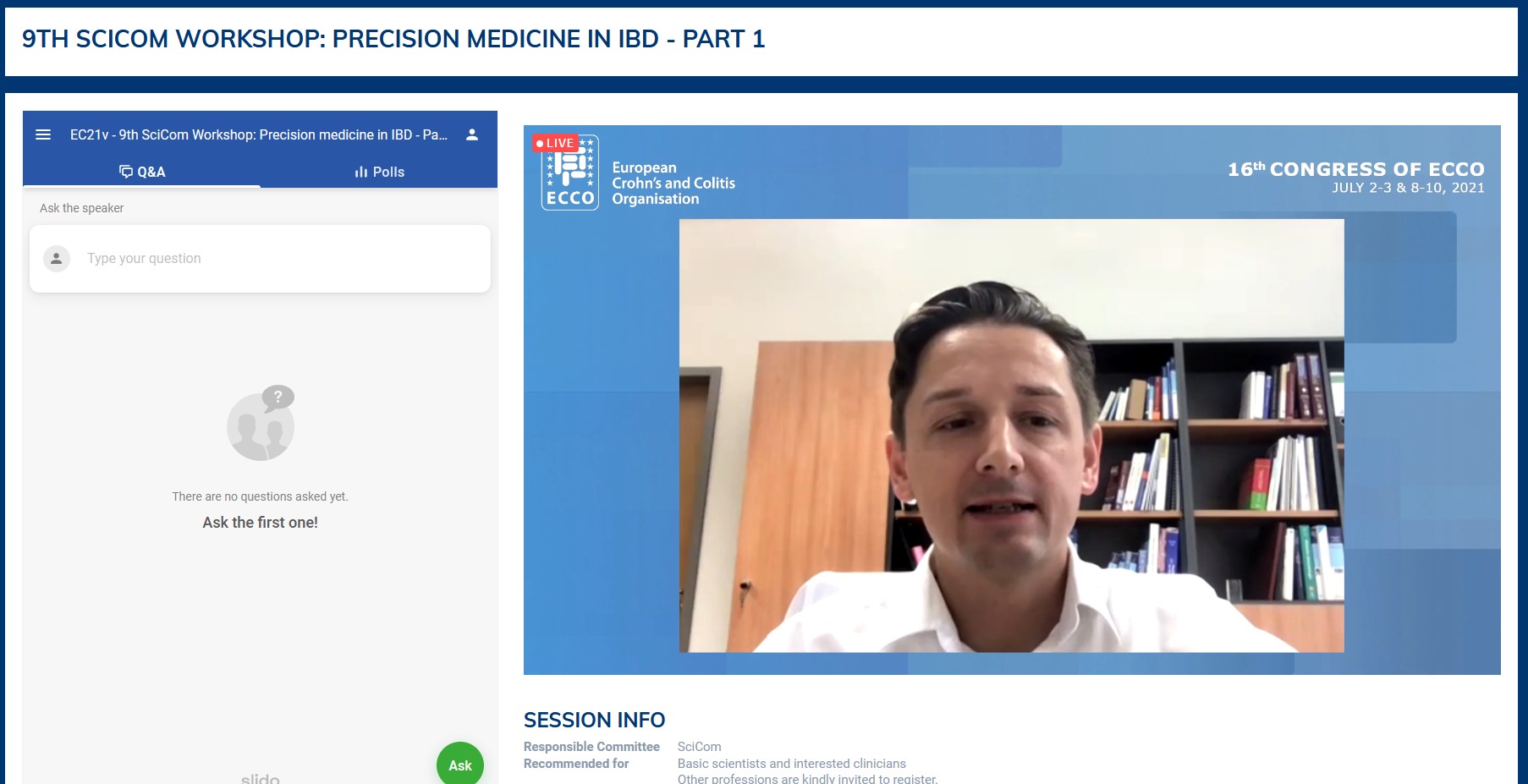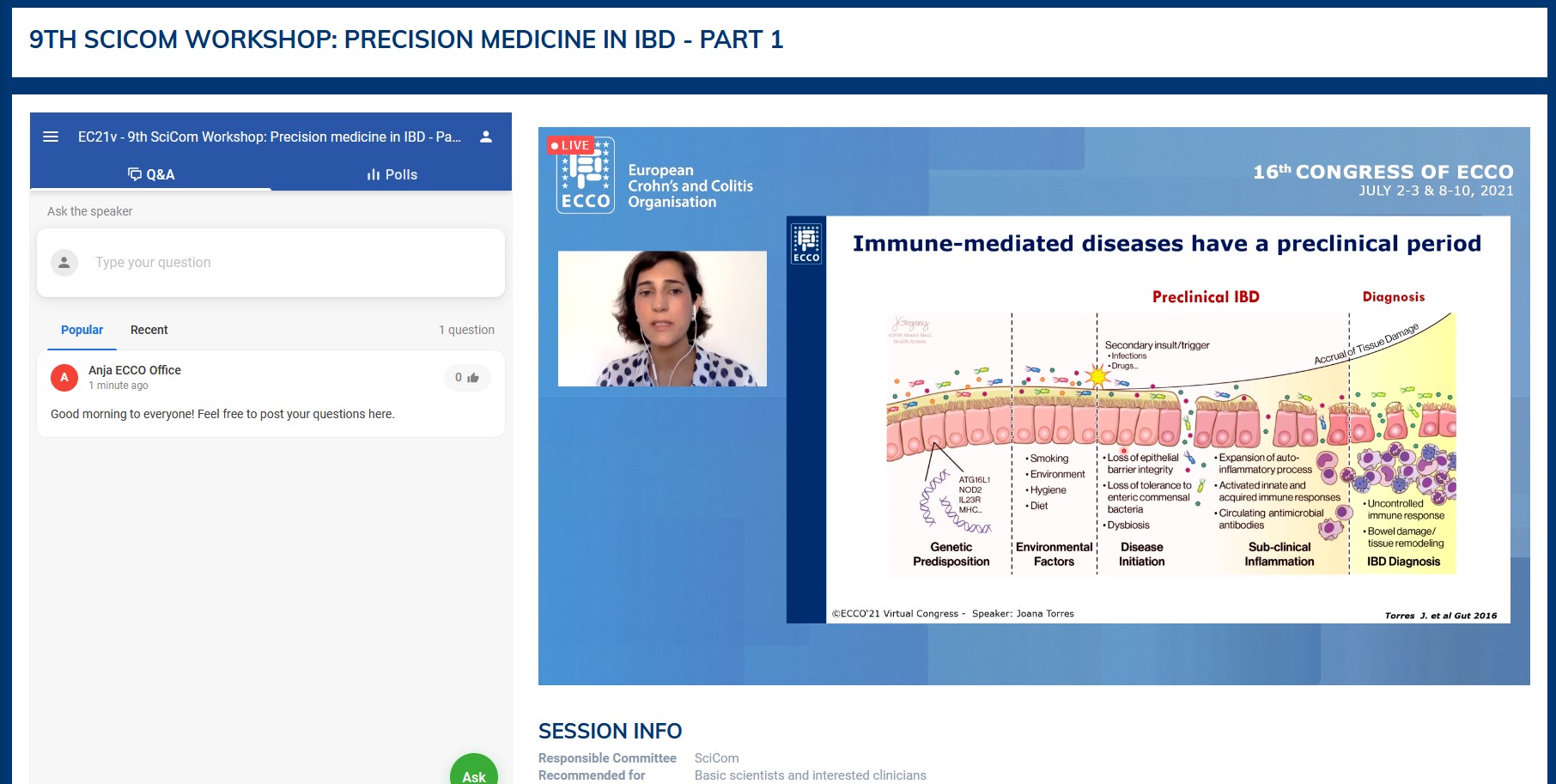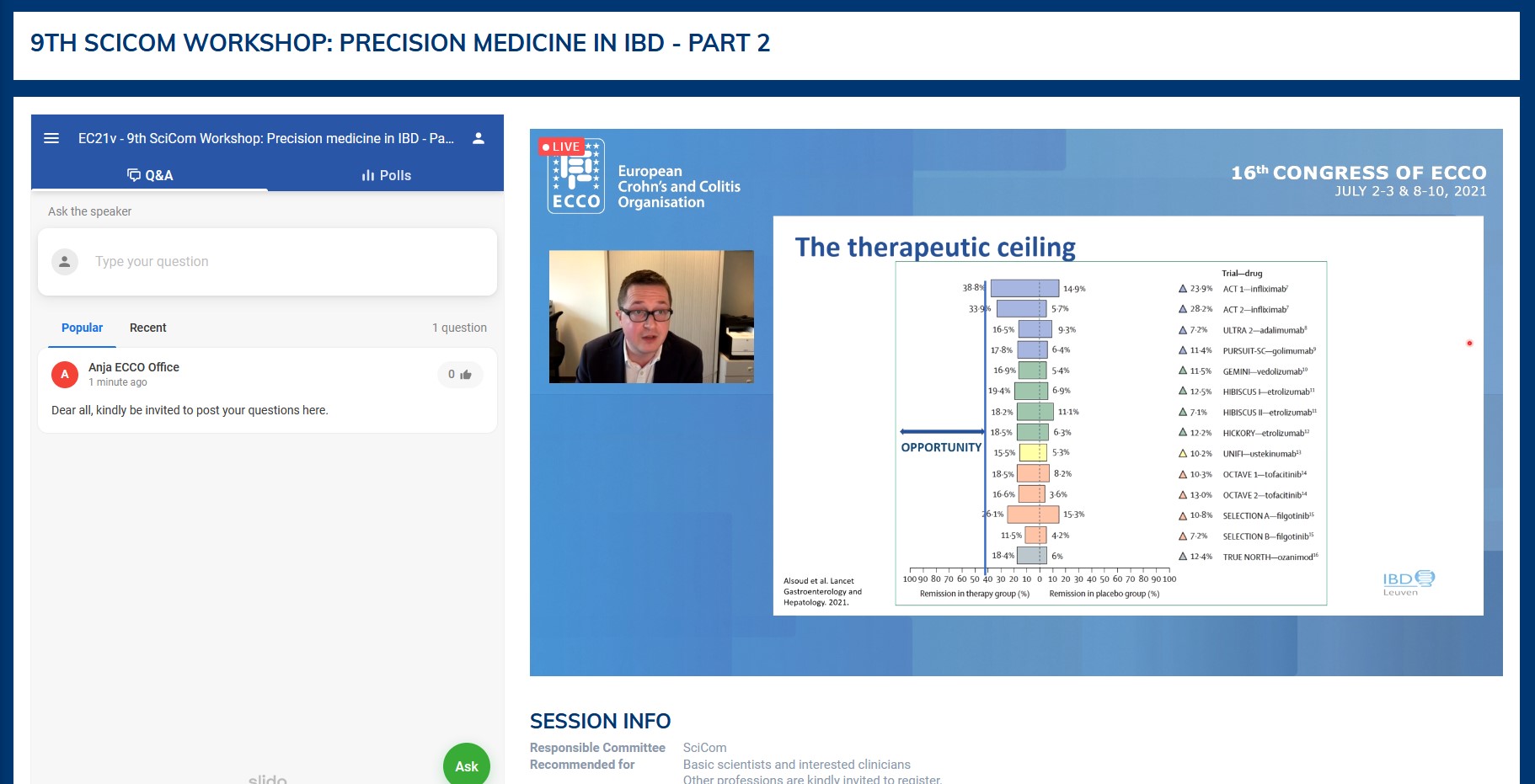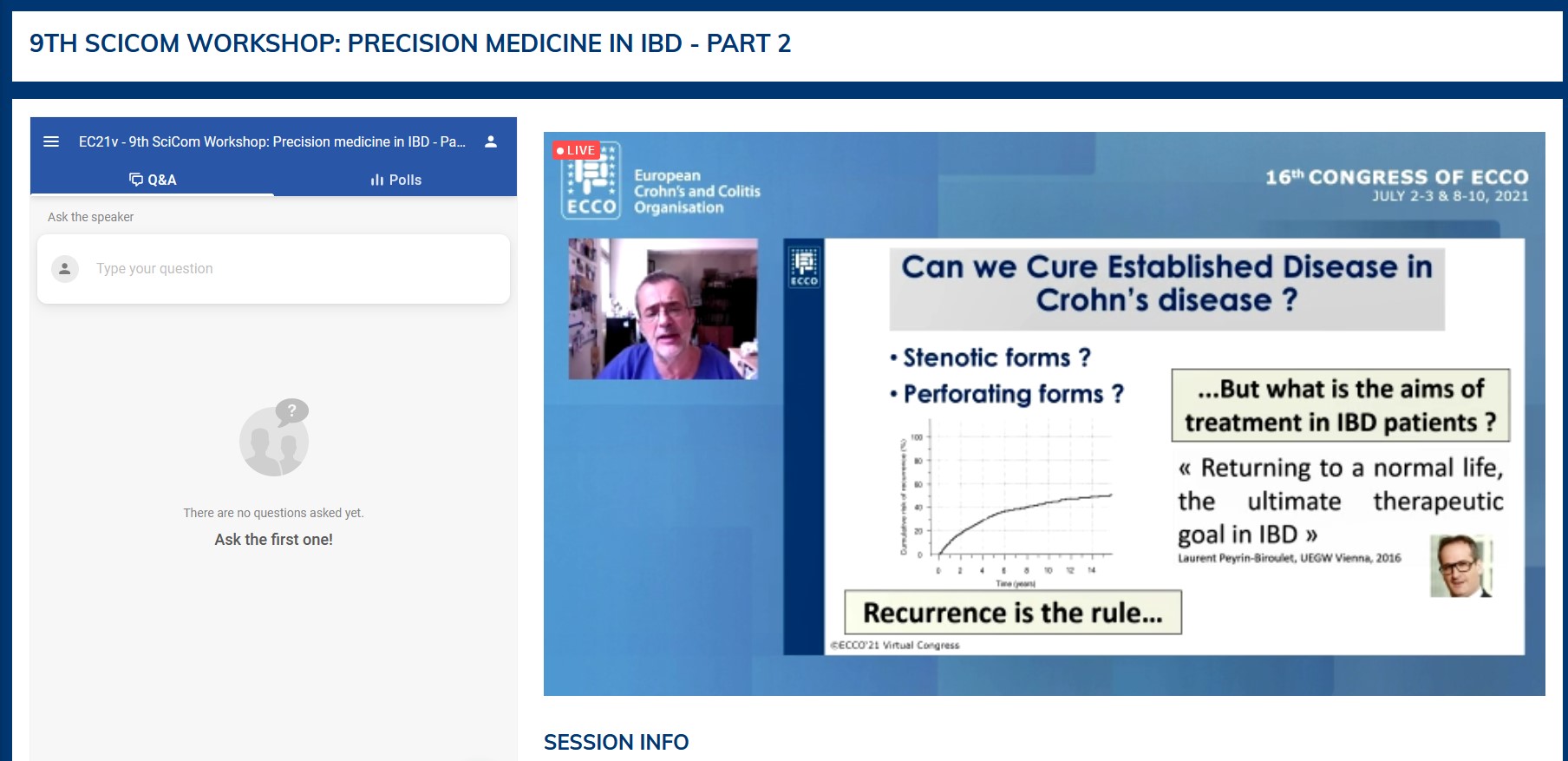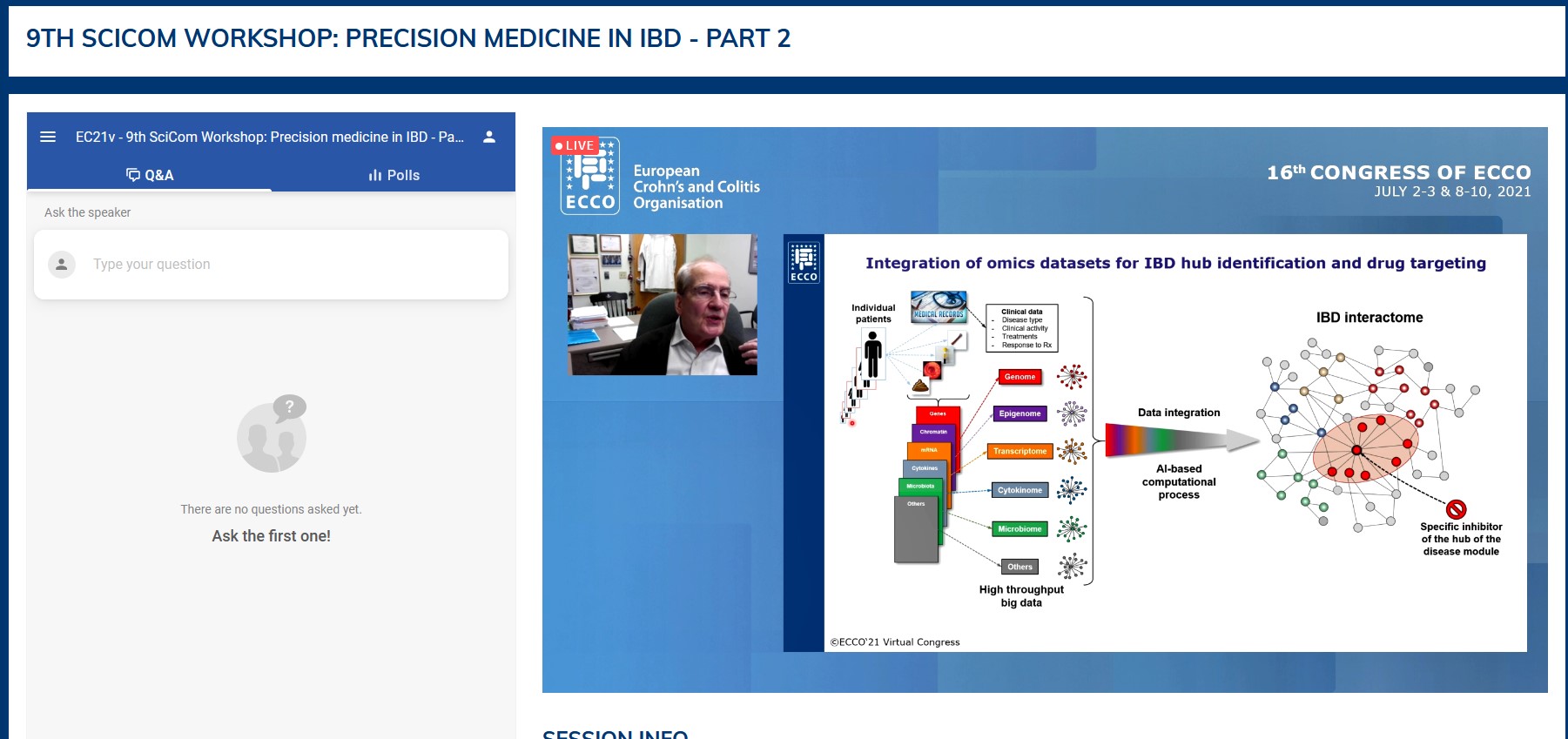Report on the 9th SciCom Workshop at ECCO'21
Yves Panis, SciCom Member
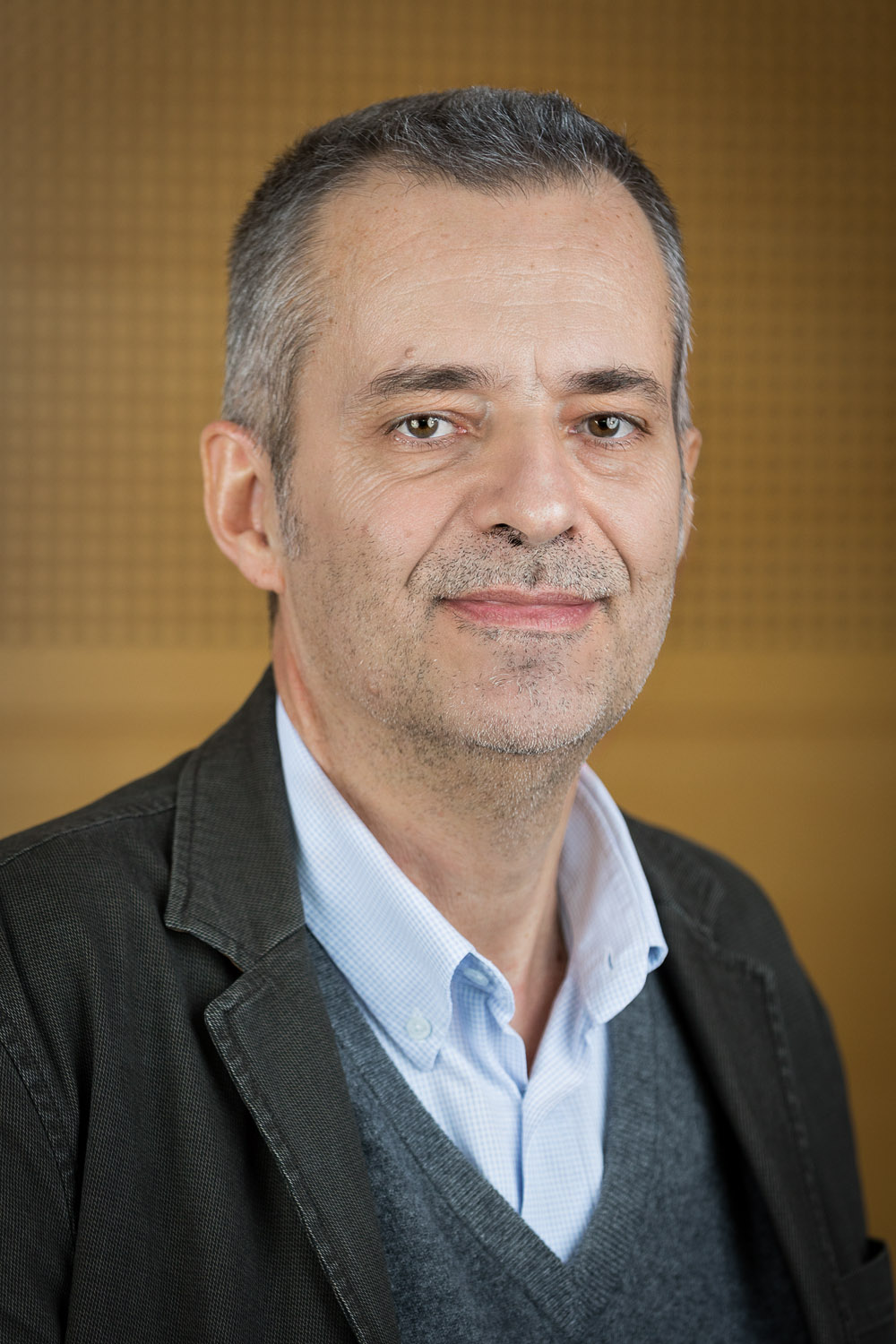 Yves Panis Yves Panis© ECCO |
Precision medicine in IBD
The ninth edition of the SciCom Workshop, held during the 16th Congress of ECCO, was dedicated to recent advances in "Precision medicine in IBD", covering different aspects from disease prevention to prediction of disease course and therapeutic responses and potential strategies for disease cure.
In the first part of the workshop, Joana Torres (Portugal) addressed a provocative question: “Can you prevent disease?”. Her talk focussed on new strategies for early recognition of individuals at risk of IBD and how to use the knowledge gained in order to develop strategies for disease interception. Joana presented three levels of prevention: primary prevention (i.e. prevention of disease development), secondary prevention (i.e. early intervention) and tertiary prevention (i.e. prevention of bowel damage in established disease). She also presented elegant work demonstrating that IBD may be predicted years before disease onset, which supports the notion that early recognition of disease risk and intervention may indeed be feasible.
This talk was followed by a lecture on “Prediction of the disease course” by James Lee (UK), starting with the question: "Why does predicting the course of disease matter?". In his talk, James described the different courses of IBD and in particular Crohn's Disease, ranging from rapidly progressive forms of disease requiring early, intensive treatment to mild or inactive disease courses which may not benefit from aggressive treatment or in which such treatment may actually elicit harm rather than benefit. These observations demonstrate a need for better tools to predict the course of disease and James provided a fascinating overview of work by his and other groups on recent developments in the design and clinical evaluation of such tests as well as their caveats.
In the second part of the workshop, Bram Verstockt (Belgium) spoke on “Predicting response to therapy”. He presented the different predictive markers available today, either for adverse event prediction or for prediction of (non-)response to treatment. In his talk, he elegantly described the challenges in the identification of predictive biomarkers, from the need for more holistic, prospective and multi-centre approaches to identify biomarkers to the delineation of markers that are truly predictive from those solely associated with disease activity. The conclusion was optimistic because precision medicine in IBD is happening, but we face various challenges and need to work together (academia and industry) to achieve these goals.
After this first lecture, a tandem talk entitled “Can you cure established disease?” closed this workshop. During the first part, Yves Panis (France) presented how and when surgery can sometimes “cure” the disease. In patients with refractory Acute Severe Ulcerative Colitis, subtotal colectomy can cure the Acute Colitis and sometimes save lives. In patients with a more chronic form of Ulcerative Colitis, laparoscopic pouch surgery can also "cure disease" and – very importantly – prevent or potentially cure cancer. Unfortunately, the situation is not the same in patients with Crohn’s Disease: while surgery is useful especially in stricturing and fistulising forms of disease, yielding improvements in quality of life, it cannot cure the disease. In the second part of the tandem talk, Claudio Fiocchi (USA) presented the medical perspective on "cure of IBD". His conclusion: we cannot cure IBD but we can improve our therapeutic approach. The main reason is the complexity of IBD: it is a heterogeneous disease that cannot be cured by targeting one disease component at any one time. For this purpose, we need to pursue a “network medicine” approach, targeting networks of pathophysiological targets in an individualised manner rather than single molecules. In concluding, Claudio presented an outlook on future personalised treatment strategies involving omics network-based treatment approaches.
We would like to thank all the speakers for their excellent presentations and the participating clinicians and basic scientists for highly interactive discussions, all of whom contributed to a very successful 9th SciCom Workshop.
Browse through the gallery:
Pictures are subject to copyright © ECCO



